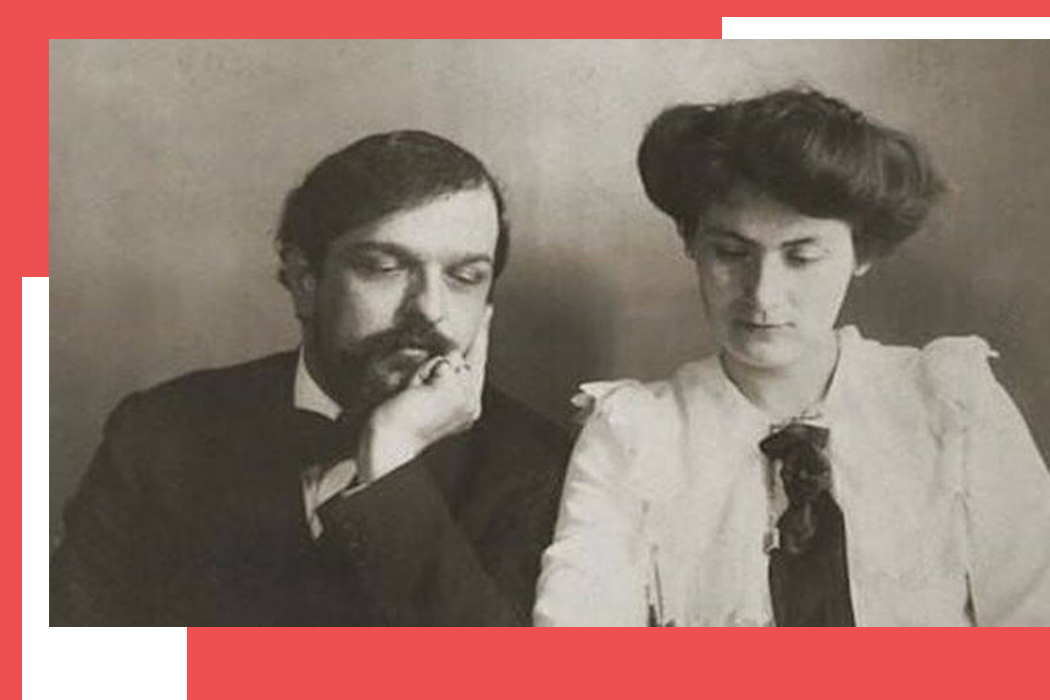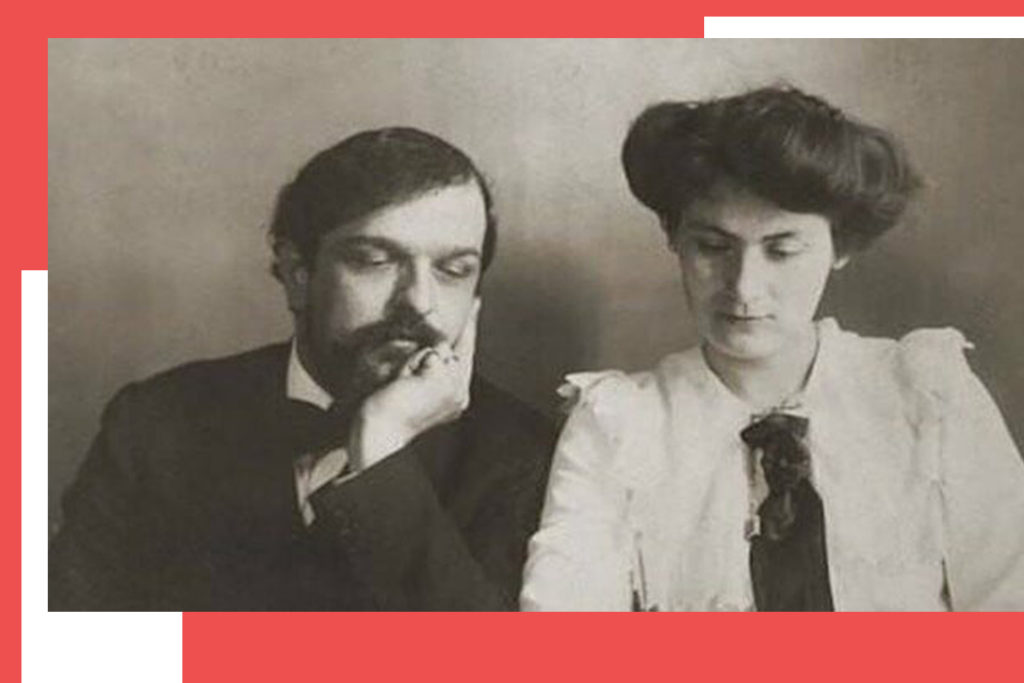
+ Welcome to Soundfly! We help curious musicians meet their goals with creative online courses. Whatever you want to learn, whenever you need to learn it. Subscribe now to start learning on the ’Fly.
Artists and musicians have a reputation of being more amorous than most, and classical composers are no exception. The arts tends to attract a certain mindset that lends itself to eccentricities, whimsy, and even capriciousness — take Sibelius, Satie, or Scarlatti and Rossini for example.
So while their advice may be best taken with a grain of salt, it should most certainly prove interesting. Let’s see what these composers have to say.
Ludwig van Beethoven – “Never pine from afar.”
Much has been made of Beethoven’s “Immortal Beloved” — revealed in an apparently unsent letter found after the composer’s death. Whoever the recipient is, Beethoven clearly is head over heels – one passage reads:
“I can only live, either altogether with you or not at all. Yes, I have determined to wander about for so long far away, until I can fly into your arms and call myself quite at home with you, can send my soul enveloped by yours into the realm of spirits — yes, I regret, it must be.”
The entire letter — which Beethoven wrote with his lover’s pencil — talks about how much he misses his lover, how miserable his life is without them. Indeed, despite the composer’s great love, the affair appears doomed by forces outside their control. To say this love-from-a-distance affected him badly would be putting it mildly; Beethoven spiraled into a deep depression and was uninspired for many years, according to historians.
The identity of Beethoven’s “Immortal Beloved” remains a hotly debated mystery (no less because it was kept so secret). The missive, never sent, was kept in a secret drawer among the composer’s things. Why such cloak and dagger over an affair of the heart?
A 1994 movie, Immortal Beloved, posited that it was Beethoven’s sister-in-law, and that his nephew was actually his son! Musical scholars believe this to be questionable at best, as the two appear to have had an acrimonious relationship from the beginning; one that culminated in a legal battle over custody of his nephew.
While many contenders have come to light over the years, only a small handful would have fit the time and location of the letter. One possible suspect is Josephine Von Brunswick. She was widowed at a young age and the two got along so well that Beethoven’s circle thought they should marry. Unfortunately, the social mores of the time forced them apart. Despite being a celebrated composer, Beethoven was a commoner and Josephine was a noblewoman, and her family forbade the union. This possibly explains both his secrecy (not wanting to expose her to scandal) and the couple’s view that the relationship can never be.
Regardless of who the letter was meant for, Beethoven never married (though he did have some romances) and was often deeply unhappy, the letter certainly points to a tortured love just out of reach. The takeaway here is don’t be like Beethoven — being desperately in love from afar but unwilling (or unable) to take the chances necessary to make it a reality. Don’t leave behind beautiful, unsent letters (or texts)! Shoot your shot!
+ Read more on Flypaper: “7 Musical Relationships That Actually Worked Out.”
Frédéric Chopin – “Don’t let a grudge ruin true love.”
By all accounts, Chopin struggled in the love department. None of his romances lasted longer than a year. That is, until he met French novelist Amantine Lucile Aurore Dupin (pen name: George Sand). The couple met in 1838 and the relationship lasted until the late 1840s — by far the composer’s longest lasting romance. Despite this, the pair were not what you would call a “match” at first blush. Sand was a brash, suited, cigar smoking feminist, and Chopin’s usual taste in partners ran a bit more feminine (typical for the time).
Nevertheless, romance blossomed.
Though some fairly misogynistic accounts consider her to have been a distraction, Sand was incredibly supportive of Chopin’s work — giving him the time, space, and physical environment to write a series of masterpieces. It was his most productive period, and perhaps the happiest. Unfortunately for the couple, Chopin became gradually more and more possessive. He also became suspicious and jealous, often displaying erratic behavior.
The relationship took a final negative turn when Sand began to look close to home for inspiration. The result, a novel called Lucrezia Floriani, depicted a prince who was little more than a thinly veiled depiction of Chopin himself. The resulting airing of dirty laundry and publicizing of Chopin’s faults was the final straw. Bitter and resentful, both sides refused to admit fault and called it quits. Chopin died soon after, his health and creativity having deteriorated.
The takeaway: If you’re in an otherwise great relationship, maybe try couples therapy before publishing a book about your significant other’s faults. Oh, and don’t be possessive, overbearing, and jealous.
Igor Stravinsky – “Avoid keeping it on the DL.”
While some relationships intentionally fly under the radar, this was so deep on the DL nobody was even sure it happened until well after both parties had died. The affair, which was alleged to have taken place with fashion designer and businesswoman Coco Chanel — happened while Stravinsky’s wife was dying of tuberculosis. Stravinsky and Chanel purportedly first crossed paths when the composer’s The Rite of Spring made its notorious premiere in 1913.
Chanel became a great patron of Stravinsky, even inviting him and his family to live in her home when he fled Russia during the revolution. The cat was let out of the bag when Chanel herself spoke of the affair to her biographer in a book that was published after her death.
Despite their romance being the subject of movies and books, the plots are largely fictionalized — friends and biographers still disagree on whether this affair actually took place at all. In fact, Stravinsky’s estate denies it to this day and the Chanel fashion house admits there is no evidence for the romance.
There’s discrete, and then there’s being some sort of love ninja. While it’s not everyone’s cup of tea (and not exactly practical to do), keeping such a high-profile love affair a secret is an incredibly impressive feat. Still, there’s nothing wrong with letting the world know you care about someone — unless you’re cheating, of course.
Claude Debussy – “Don’t fall into the trap of never committing.”
Despite being clumsy, awkward, and highly unsociable, Debussy appears to have been a bit of a hit with the ladies. He had multiple affairs, including an eight-year affair with an older married woman. He lived casually with Gaby DuPont, which was absolutely shocking for a time when women had to be extensively courted, chaperoned, and wed before a home life could begin. While with Gaby, he apparently had an affair with another woman, Therese Roger (to whom he was eventually briefly engaged), before leaving Therese for her friend Rosalie Lily Texier, creating a fraught and tense love triangle.
The composer finally decided to settle down with Lily, a marriage that lasted four short years. Debussy’s chief issue appears to have been his beau’s lack of musical aptitude — something he evidently failed to note during their courtship (really, Claude? Come on). Ever the class act, he sent her to visit her father so he could have an affair with the mother of one of his piano students. Apparently newly enamored, he quickly wrote to his wife to tell her their marriage was over.
To say she did not take this well would be putting it mildly. Obviously emotionally distraught, she responded by shooting herself in the middle of the Place de la Concorde. Fortunately, she went on to survive.
Needless to say, this proved to be a massive scandal for Debussy — one too many. A great number of his friends rightfully disapproved of his behavior and took up a significant collection for Lily and her medical bills. Debussy completely cut off every single person who contributed. He did eventually marry the woman he left Lily for, Emma Bardac, but it seems he had little choice after all the drama. No doubt his philandering continued regardless.
A leopard rarely changes its spots.
It’s pretty clear that Debussy was a toxic person who couldn’t settle down or commit for very long. If you prefer a happy, tranquil love life, don’t date multiple people at once; let alone friends of friends. However, if you’re the type of person who thrives on chaos and would need a team of private investigators to untangle your love life, Debussy certainly left quite a blueprint behind for you.
Perhaps talent — even extraordinary talent — doesn’t always mean you share the same smarts with your heart. It should go without saying that following the advice of these brilliant composers in the Love Department, should elicit some caution.
Don’t stop here!
Continue learning with hundreds of lessons on songwriting, mixing, DIY home recording and production, composing, beat making, and much more, with Soundfly’s artist-led courses, like: Jlin: Rhythm, Variation, & Vulnerability, RJD2: From Samples to Songs and Kimbra: Vocal Creativity, Arranging, & Production.





